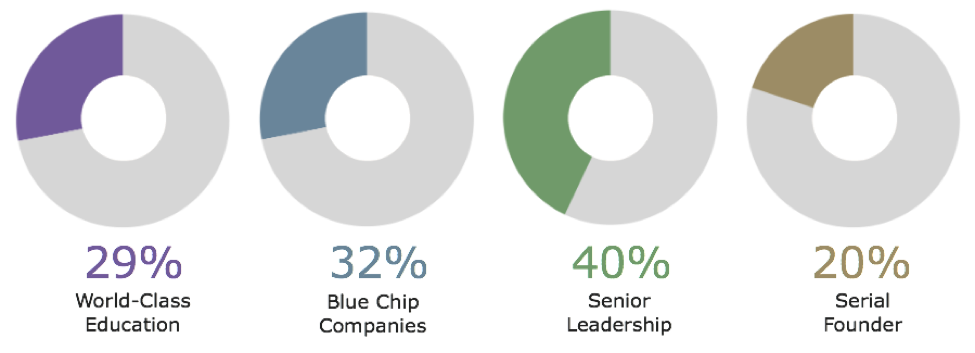Why You Shouldn’t Drop Out of School to Start a Company
The image of a young, unstoppable founder is certainly appealing -- cultivated in movies like “The Social Network” and through press-friendly initiatives like the Thiel 20 Under 20, there’s plenty in popular culture to suggest that the essential ingredients of entrepreneurship are little more than youth and a healthy dose of determination.
This narrative is appealing – after all, dropping out of college to make millions of dollars sounds like a pretty great proposition – but as we discovered, the data paint a starkly different picture. Leveraging funding data from the popular investment tracking platform Crunchbase, the LinkedIn Data team applied state-of-the-art machine learning technology to analyze the demographics and relationships of more than 1,200 tech entrepreneurs whose companies successfully raised a round of venture capital funding in 2013. Below are a few highlights from the research:
A Strong Foundation
First and foremost, building from a strong educational foundation is a smart bet. The majority of these VC-backed entrepreneurs list a college education on their LinkedIn profile, with nearly 30% having attended top-tier universities such as Stanford, MIT or Harvard.
But education is not the only foundational piece. Leaders of venture-backed startups also tend to have experience at large, highly-capitalized technology firms – with more than 30% of individuals having work experience at companies with a market cap above $50 billion. What’s more, these men and women tend to develop leadership experience before founding a company, with more than 40% holding positions at the director level or above prior to their current role. Another commonality is the serial entrepreneur, with 20% having founded at least one company before their current VC-backed startup.
Finally, we find that age matters, but not in the way many assume. The data show a significant increase in the size of the first-round investment as entrepreneurs enter their thirties and that increase holds steady as age increases.
Data-Driven Career Tips for Aspiring Entrepreneurs
For the men and women interested in starting a company, the path to success is rarely straightforward. But this analysis sheds light on the popularized image of a young, unstoppable founder and replaces it with the educated, experienced business leader. If you are interested in starting your own company, here are a few lessons to take away:
- Acquire a world-class education – focus on management, leadership, and technology
- Get experience at top-tier technology companies – gain exposure to industry best practices and set a goal of developing leadership experience.
- Good things come to those who wait – investing wisely in professional and educational development now will yield economic dividends as you age.
If you are interested in reading more about this research check out the full report here.



